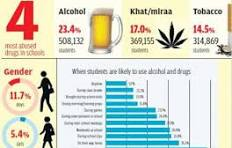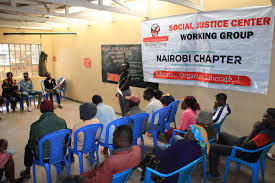HOW WE CAN OVERCOME DRUG ABUSE IN LEARNERS
Certainly! Here is a story about how learners came together to overcome drug use in their community:
Once upon a time, in a small town called Matuu in machakos, a group of high school students noticed that many of their peers were struggling with drug use. They were concerned about the negative impact it was having on their friends and the community as a whole. Determined to make a difference, they decided to take action.
The students organized a series of awareness campaigns and workshops to educate their classmates about the dangers of drugs and the resources available for support. They invited guest speakers, including recovering addicts and counselors, to share their stories and offer guidance.
As they gained knowledge, the students also started a peer support group for those who wanted to quit using drugs. They provided a safe space for individuals to share their struggles, seek advice, and offer encouragement to one another.
Through their efforts, the students were able to create a supportive and understanding community that empowered each member to make positive changes in their lives. Over time, they saw a significant decrease in drug use among their peers and witnessed a newfound sense of hope and resilience taking root in matuu.
The students' commitment to helping each other overcome drug use not only transformed their own lives but also inspired others in the community to join their cause. Together, they proved that with compassion, support, and determination, anyone can break free from the grip of drugs and create a brighter future for themselves and those around them.
 Preventing drug abuse in learners is crucial for their overall well-being and success. Here are some effective ways to address and prevent drug abuse among learners:
Preventing drug abuse in learners is crucial for their overall well-being and success. Here are some effective ways to address and prevent drug abuse among learners:1.Education and Awareness Programs: Providing comprehensive drug education and awareness programs in schools can help learners understand the risks associated with drug abuse and make informed decisions.
2.Building Resilience and Coping Skills: Encouraging learners to develop healthy coping mechanisms and build resilience against peer pressure and stress can help prevent them from turning to drugs as a means of escape.
3.Creating a Supportive Environment: Establishing a supportive and inclusive school environment where learners feel safe to share their concerns and seek help can prevent drug abuse by offering them alternative sources of support and guidance.
4.Engaging Parents and Guardians: Involving parents and guardians in drug prevention efforts through workshops, seminars, and resources can strengthen the support system for learners and create a unified approach to addressing drug abuse.
5.Providing Access to Counseling and Support Services: Offering access to counseling services, support groups, and mental health resources within the school can help learners struggling with drug abuse seek the help they need in a confidential and understanding environment.
6.Implementing Clear Policies and Consequences: Enforcing clear and consistent policies against drug abuse, along with appropriate consequences, can deter learners from engaging in risky behaviors and reinforce the importance of making healthy choices.
7.Encouraging Positive Peer Influence: Fostering positive peer relationships and encouraging learners to support each other in making healthy decisions can create a social network that promotes positive behaviors and discourages drug abuse.
By implementing these strategies and promoting a culture of prevention and support, educators and stakeholders can work together to create a safe and nurturing environment that empowers learners to make healthy choices and thrive academically, emotionally, and socially.











Good work
ReplyDeleteVery good my friend keep it up
ReplyDeleteJust wish all learners would read en learn from this
ReplyDelete